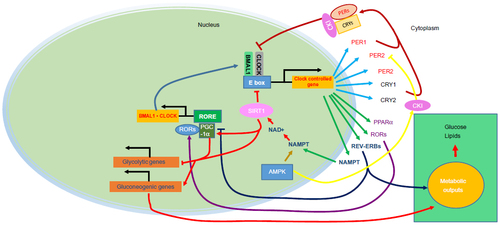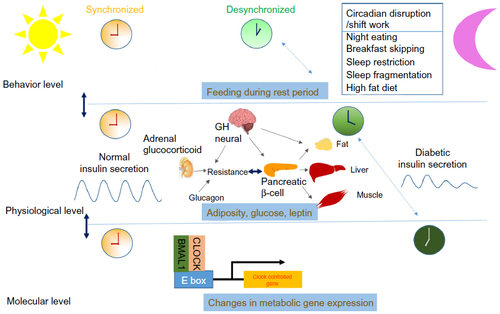Figures & data
Figure 1 The mammalian core components of the clock system.
Abbreviations: AMPK, adenosine monophosphate-activated protein kinase; NAD+, nicotinamide adenine dinucleotide; NAMPT, nicotinamide phosphoribosyltransferase; CKI, casein kinase I; PPARα, peroxisome proliferator-activated receptor alpha; CLOCK, circadian locomotor output cycles kaput; BMAL1, brain and muscle Arnt-like protein; PGC1-α, peroxisome proliferator-activated receptor gamma co-activator 1-alpha.

Figure 2 Behavioral factors that may affect the development of type 2 diabetes are influenced by shift work, eating behavior (breakfast skipping, night eating), and sleep loss (sleep restriction, sleep fragmentation).
Abbreviations: GH, growth hormone; CLOCK, circadian locomotor output cycles kaput; BMAL1, brain and muscle Arnt-like protein.

Table 1 Summary of the behavioral aspects of circadian rhythm in relation to development of type 2 diabetes mellitus
